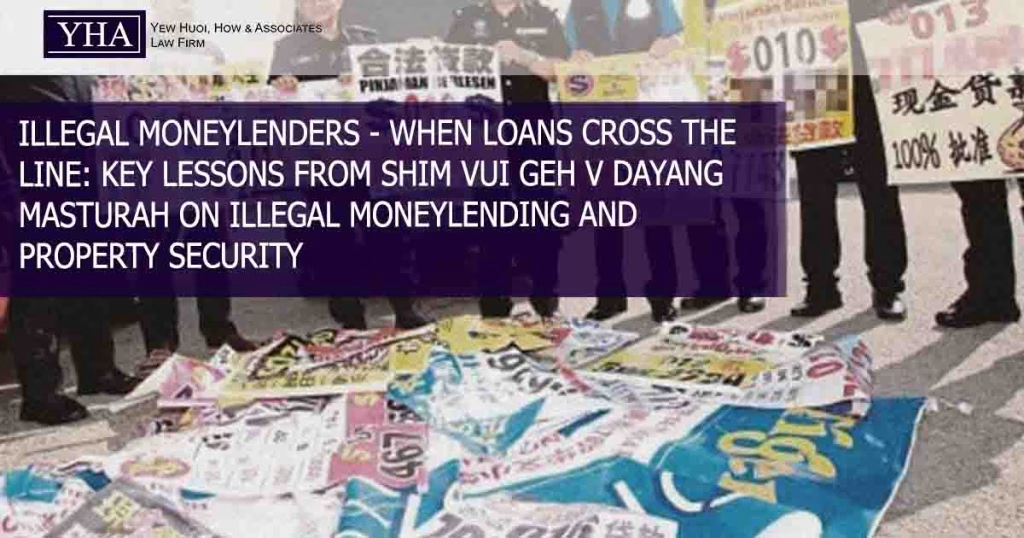Summary and Facts
In Shim Vui Geh v Dayang Masturah bt Sahari and another appeal [2024] 1 MLJ 755, the dispute arose from a loan agreement where the plaintiffs provided properties as security and later transferred these properties to the defendant following a loan default. The High Court initially ruled in favour of the plaintiffs, declaring the loans void under the Moneylenders Act 1951 (“the MA”) due to the unreasonable interest rate. The defendant appealed this decision to the Court of Appeal (COA).
Legal Issues
i. Whether the plaintiffs could claim they did not understand the nature of the agreements they signed?
ii. Whether the transactions constituted friendly loans or illegal moneylending?
iii. Whether the lender was entitled to take outright ownership of properties as security following the borrowers’ default?
iv. Whether the transfer and registration of the properties in the lender’s name were legally enforceable or should be set aside?
Court Findings
- The Court held that the plaintiffs could not deny knowledge of the agreements they signed. Evidence showed that a lawyer explained the documents in their native language, confirming their understanding.
- Shim successfully rebutted the presumption of being engaged in illegal moneylending by demonstrating the absence of a pattern or continuity in such transactions.
- The Court ruled that land provided as security must follow the prescribed method under the Moneylenders (Control and Licensing) Regulations 2003.

